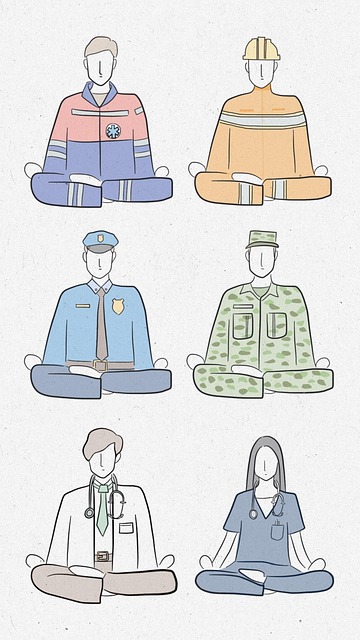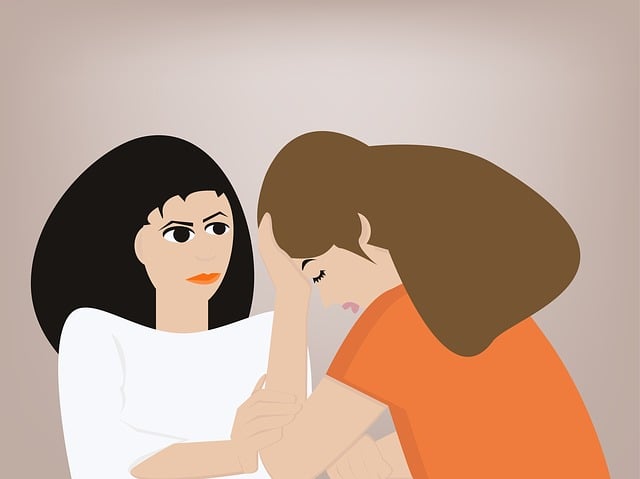Stress management is a critical component of elderly care, with unique challenges arising from retirement and health issues. Effective coping strategies include Cognitive-Behavioural Therapy (CBT) for negative thought patterns, self-care practices, and public awareness campaigns. For elders in polyamorous and open relationships, specialized therapy is vital to address emotional dynamics, including jealousy and trust concerns, reducing burnout through tailored coping mechanisms and stress reduction methods. Tailored couple's therapy techniques like mindfulness and self-esteem improvement empower individuals to build resilience and navigate complexities. Incorporating targeted wellness practices can significantly alleviate stress, promote personal growth, and strengthen emotional bonds within these unique relationship structures.
Stress reduction is a vital practice, especially for elders, polyamorous individuals, and those in open relationships, who may face unique challenges. This article explores various methods to combat stress, focusing on tailored approaches for each group. We delve into the understanding of stress and its profound impact on elders, offering therapy options specific to polyamorous and open relationships. Additionally, we present effective coping strategies and wellness practices designed to reduce stress, promoting overall well-being.
- Understanding Stress and Its Impact on Elders
- Exploring Therapy Options for Polyamorous Individuals
- Coping Strategies for Open Relationships
- Incorporating Wellness Practices for Stress Reduction
Understanding Stress and Its Impact on Elders

Stress is a universal experience, but its impact can vary greatly among different age groups. For elders, managing stress effectively becomes even more crucial as it can significantly affect their overall health and quality of life. Understanding the root causes of stress in this demographic is essential. Many older adults face unique challenges such as retirement, health concerns, and social isolation, which can contribute to heightened anxiety and depression.
Therapy plays a vital role in helping elders cope with stress. Cognitive-behavioural therapy (CBT), for instance, has proven effective in teaching individuals to identify and change negative thought patterns. Additionally, polyamorous and open relationships can provide a supportive network, fostering social connections that are essential for mental wellness. Self-care practices, such as regular exercise, mindful meditation, and engaging hobbies, are also powerful tools to combat stress. Public awareness campaigns and mental wellness podcast series production can contribute to raising awareness about these issues, ensuring elders have access to the resources they need to navigate life’s challenges with resilience.
Exploring Therapy Options for Polyamorous Individuals

For individuals navigating the complexities of polyamorous and open relationships, finding suitable therapy options is essential for managing emotional well-being. Therapy serves as a safe space to explore the unique challenges associated with non-traditional relationship structures, fostering better communication and understanding among partners. It’s important to note that specialized therapists who have experience with these dynamics are key to effective support. Such professionals can help individuals build inner strength through coping mechanisms tailored to their needs, addressing issues like jealousy, trust concerns, and boundary setting.
When seeking therapy for polyamorous relationships, considering a therapist who understands the nuances of open relationships is crucial. This specialized approach can prevent or mitigate burnout, a common concern among those in non-monogamous arrangements due to heightened emotional labor and communication demands. Stress reduction methods within therapy can equip individuals with tools to navigate relationship dynamics, enhancing overall satisfaction and resilience.
Coping Strategies for Open Relationships

In open or polyamorous relationships, coping strategies must be tailored to accommodate unique dynamics and emotional needs. While traditional therapy models may not always fit, specialized approaches like couple’s therapy specifically designed for polyamorous communities can offer safe spaces for discussing boundaries, jealously management, and communication challenges. Incorporating practices such as mindfulness and self-esteem improvement techniques empowers individuals within these relationships to build resilience and navigate complexities with greater ease.
For mental health professionals working with elders in open relationships, it’s crucial to understand the nuances of their experiences. Effective risk management planning involves assessing potential triggers, establishing clear guidelines for ethical conduct, and fostering a non-judgmental environment. By integrating these strategies into therapy sessions, professionals can better support clients in cultivating healthier relationships, enhancing overall well-being and promoting positive mental health outcomes specific to polyamorous and open relationship structures.
Incorporating Wellness Practices for Stress Reduction

Incorporating wellness practices can significantly reduce stress levels, especially for elders navigating complex personal dynamics like polyamorous and open relationships. Therapies designed specifically for this demographic offer a safe space to explore and manage stress, anxiety, and potential conflicts that may arise within these unique relationships. By integrating coping skills development and emotional intelligence training into their routines, individuals can enhance their ability to handle challenging situations, fostering healthier connections.
Additionally, learning conflict resolution techniques becomes invaluable in these contexts. Through professional guidance, elders can develop strategies to navigate disagreements with partners or other family members, ensuring open communication remains a cornerstone of their relationships. These wellness practices not only alleviate stress but also promote personal growth and strengthen the emotional bonds that define polyamorous and open relationships.
Stress reduction is a multifaceted approach, especially tailored for diverse relationships like polyamory and open relationships. Incorporating wellness practices alongside exploring suitable therapy options, such as those designed for elders, can significantly mitigate stress and enhance overall well-being. For polyamorous and open relationship individuals, seeking support through specialized therapy can foster healthier dynamics and improve mental resilience, making it a valuable tool in managing stress.









